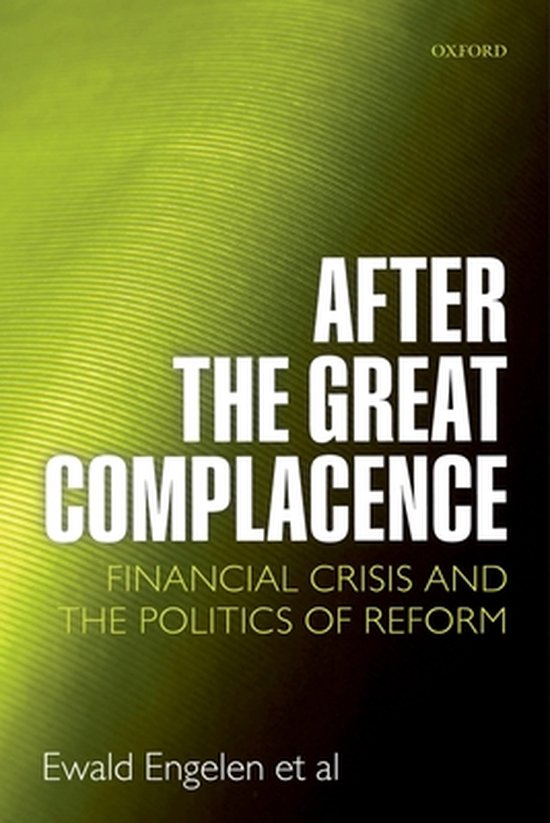De Boeken van Wouter
After The Great Complacence
After The Great Complacence
Kan beschikbaarheid voor afhalen niet laden
Verzending is beschikbaar op maandag en vrijdag
Meestal verzonden binnen 1–4 dagen na bestelling
4 boeken kopen = 3 betalen
Gratis verzending vanaf €25
Titel: After The Great Complacence
Schrijver: Ismail Erturk
Bindingswijze: Hardcover
EAN: 9780199589081
Conditie: Goed
Let op: Hieronder staat een algemene beschrijving van hoe wij onze conditietypes classificeren. Als u een nauwkeuriger beeld wilt of specifieke vragen heeft, stuur ons dan een bericht en we kijken het graag voor u na.
Conditie-omschrijvingen:
- Als Nieuw: Nauwelijks gebruikssporen, bijna als nieuw.
- Goed: Kan lichte gebruikssporen vertonen, zoals wat verkleuring of een naam op de schutbladen, maar doorgaans geen onderstrepingen of aantekeningen in de tekst.
- Redelijk: Boek in redelijke staat. Kan gebruikssporen vertonen, zoals verkleuring, leesvouwen in de rug, onderstrepingen, aantekeningen, lichte vervuiling aan de randen, ezelsoren of een kromme rug.
- Nieuw: Boek is nieuw.
Beschrijving:
This book provides an accessible cultural and political analysis of how our disorderly and financialized system of capitalism works, what led to the financial crisis that began in 2007, the policy debates about reform, and why democratic control is difficult after the events of 2008.
What is the relationship between the financial system and politics? In a democratic system, what kind of control should elected governments have over the financial markets? What policies should be implemented to regulate them? What is the role played by different elites - financial, technocratic, and political - in the operation and regulation of the financial system? And what role should citizens, investors, and savers play? These are some of the questions addressed in this challenging analysis of the particular features of the contemporary capitalist economy in Britain, the USA, and Western Europe. The authors argue that the causes of the financial crisis lay in the bricolage and innovation in financial markets, resulting in long chains and circuits of transactions and instruments that enabled bankers to earn fees, but which did not sufficiently take into account system risk, uncertainty, and unintended consequences. In the wake of the crisis, the authors argue that social scientists, governments, and citizens need to re-engage with the political dimensions of financial markets. This book offers a controversial and accessible exploration of the disorders of our financial capitalism and its justifications. With an innovative emphasis on the economically 'undisclosed' and the political 'mystifying', it combines technical understanding of finance, cultural analysis, and al political account of interests and institutions.
Share

Let customers speak for us
from 32 reviewsHet boek was in super mooie staat en ook zeer snel en netjes geleverd.

snel geleverd, prima service, goede staat!

Mooi snel en keurig verzonden.

Prima boek en in goede staat ontvangen.

Zeer Geweldig & Bedankt voor de levering 👌

Super blij met mijn boek en in erg mooie staat

Vlotte levering, boek in goede staat, leuke bladwijzer, danku!

Heerlijk boek om te lezen en uit te koken. En wat heel fijn is: beide kanten van de mediterranae.

zag er goed uit, nauwelijks leessporen. Snelle en goed verpakte verzending.

Snelle levering en boeken in goede staat!

Boek nog niet gelezen maar in keurige staat ontvangen





